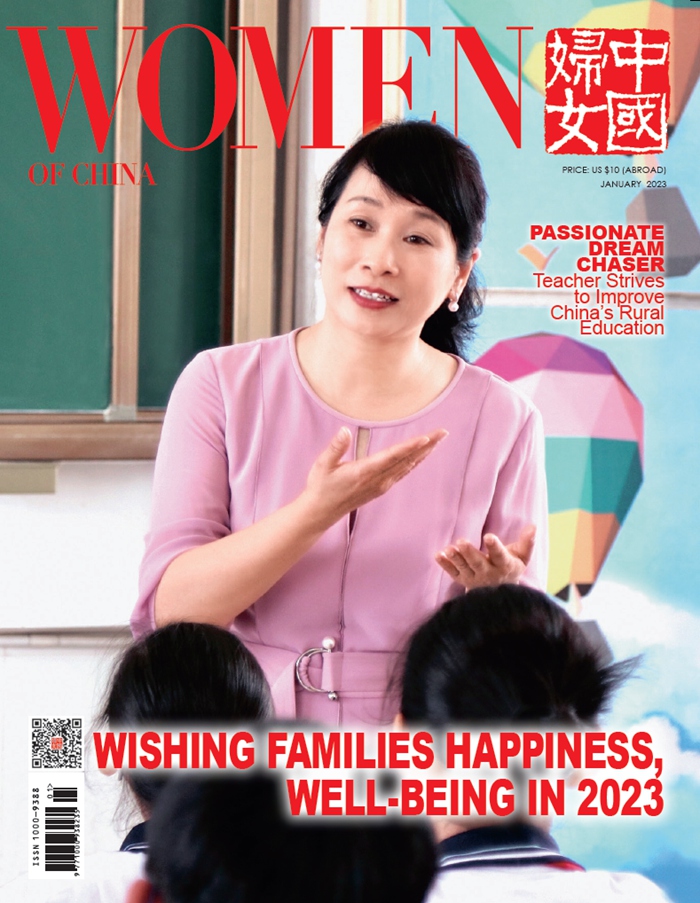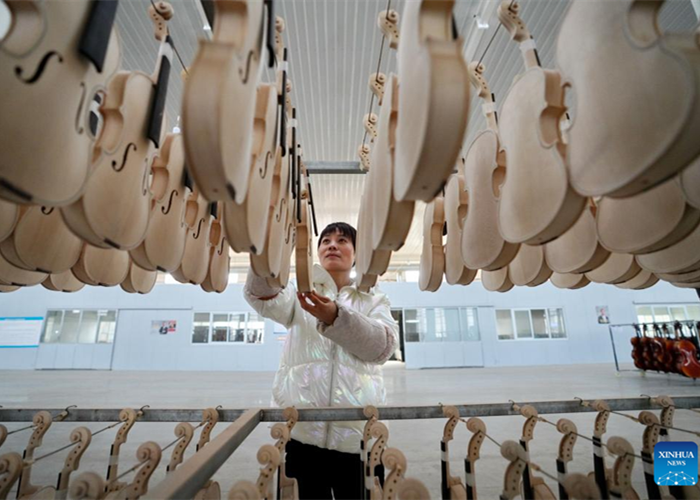Former Financial Analyst Breaks New Ground in Modern Agriculture
Gu Ruojun, who switched from finance to agriculture, spent three years developing nearly 33 hectares of waste land into a modern farm.
Starting from scratch, Gu is now the general manager of a fruit and vegetable cooperative in Wuxi City of East China's Jiangsu Province, securing the lives of more than 200 farmers. She has led the cooperative to realize an annual output value of more than 20 million yuan (US $2.8 million).
After graduating from Nanjing University, Gu went to Canada for further study and then became a financial analyst in Shanghai's Lujiazui area, a financial and trade zone.
In the summer of 2017, at the peak of her career, she made a brave decision to return to the countryside to start her own business.
"Most of my relatives were against my decision at that time. My parents didn't object, but they told me to get well prepared for the long haul," Gu recalled.
Gu's new career got off to a rocky start, as her parents had estimated. The hard work on the farm was not what she expected, and she was frustrated by the huge gap between urban life and rural work. But it also inspired her to insist on learning farming skills such as how to mix livestock feed and plant seedlings, just two of her efforts to go all the way and grope forward in the new industry.
With her business vision, Gu led her team to expand a pigeon breeding base, build an e-commerce platform and roll out a series of knock-out products such as black pigs, young pigeons and peaches, amplifying the influence of her start-up agricultural brand in Wuxi.
Now, her cooperative is a leading enterprise in the city's agricultural industrialization. It is the first eco-circular agriculture demonstration base under the Jiangsu Academy of Agricultural Sciences in southern region of Jiangsu Province, and it is also the first farm to equip with an environmentally-friendly
microbial fermentation system in the city.
"We try to develop ecological agriculture. The feed comes from farm crops, and the animal waste is fermented and converted into solid organic fertilizer, which forms an ecological cycle," Gu explained, adding that her farm's annual stock of 1,000 pigs and 100,000 pigeons is fed entirely from the farm's crops.
With the emerging "Internet Plus" modern agriculture, Gu has introduced cutting-edge technologies such as a fully-covered spray disinfection system into her hog houses, and she has cooperated with a university to set up a production and research base for animal genetics, breeding and reproduction on her pigeon farm. She also established a database with the support of experts, which helps her make reasonable breeding plans and carry out refined breeding.
Gu has planned to develop the farm into an environmentally-friendly one that demonstrates ecological circulation agriculture and has ecological agricultural products for sale as well as a healthy and comfortable environment for people to live in after retirement.
However, a storm may arise from a clear sky. Poultry sales have been hit hard by the novel coronavirus (COVID-19) outbreak earlier this year.
The farm used to sell products on a wholesale basis, and its main customers were restaurants and retailers. After the outbreak of the epidemic, hotels and live poultry markets closed down and pigeon sales became a big problem, with the backlog peaking at more than 30,000 birds.
Gu figured out a three-step strategy to get out of the dilemma, which gives full play to the Internet. The first step is community-based group buying online. The young pigeons are firstly packed at her farm, and consumers place orders in WeChat groups, then the products are directly delivered to their homes through contactless delivery.
Promoting the farm products via livestreaming platform is the second step. Gu opened a livestreaming account and personally promoted her products such as young pigeons and pigeon eggs to audiences nationwide.
In addition, she designed a cartoon image for her pigeons and developed a series of cultural and creative products, including WeChat emojis and desk calendar. With the help of the Internet, the daily sales of the young pigeons set a record of 1,000 now.
After quitting her job in the big city and returning to the countryside, Gu admitted that she was not accustomed to the rural areas at the beginning, but she never felt inferior.
"I hope my story can inspire more college students to start their businesses in the rural areas and help boost China's rural revitalization," said Gu.
(Source: ourjiangsu.com/Translated and edited by Women of China)
Please understand that womenofchina.cn,a non-profit, information-communication website, cannot reach every writer before using articles and images. For copyright issues, please contact us by emailing: website@womenofchina.cn. The articles published and opinions expressed on this website represent the opinions of writers and are not necessarily shared by womenofchina.cn.








 WeChat
WeChat Weibo
Weibo 京公网安备 11010102004314号
京公网安备 11010102004314号